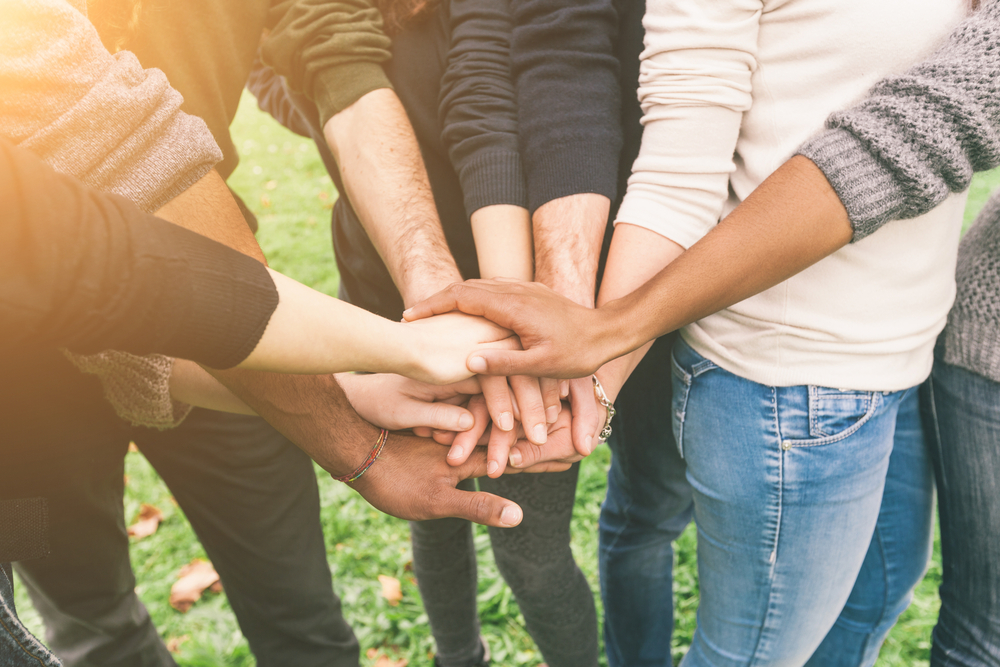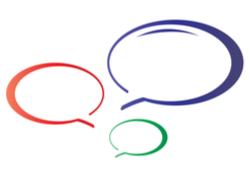by Sandra T. Chang, Ph.D., LACDMH, ARDI Division-Cultural Competency Unit
- Is joining a dynamic and productive Committee one of your new year’s resolutions?
- Are you interested in learning about and hearing the voices of different cultures?
- Would you like to be a part of a group that advocates for the mental health needs of different cultural groups?
If you answered “yes” to any of the questions above, seek no more, you have found the Cultural Competency Committee (CCC).
Welcome and best wishes of a healthy and prosperous New Year 2022! The CCC serves as an advisory group for the infusion of cultural competence in all of Los Angeles County Department of Mental Health (LACDMH) operations. Our members represent abounding cultural and linguistic perspectives of consumers, family members, advocates, peers, directly operated and contracted providers, and community-based organizations. Everyone is welcome to the CCC. We meet virtually on the second Wednesday of the month from 1:30 to 3:30 p.m., and the full meeting schedule for 2022 is available here.
CCC Mission Statement, Motto and Logo
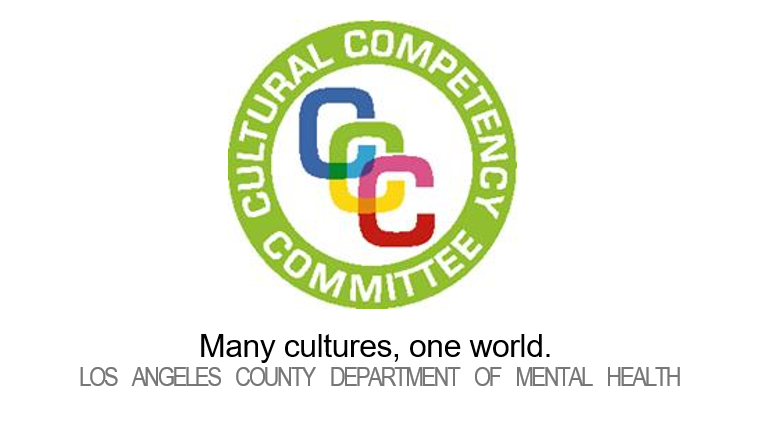
“Increase cultural awareness, sensitivity, and responsiveness in the LACDMH’s response to the needs of diverse cultural populations to foster hope, wellness, resilience, and recovery in our communities.” In recognition of the richness of cultural diversity, the committee’s motto is “Many Cultures, One World.”
The CCC started the new year with Co-Chair elections. Both Co-Chairs come directly from the community. Meet the 2022 CCC Co-Chairs through their own words:
Bernice Mascher
I would like to thank the CCC for allowing me to continue to offer support and outreach as a co-chair for this year. I am honored to serve such a vibrant and passionate group of stakeholders that represent such diverse backgrounds and share so many unique insights. I have learned so much from everyone, and I am anticipating all I will learn and experience this year as well. I also look forward to teaming up with my fellow co-chair, Johana Lozano.
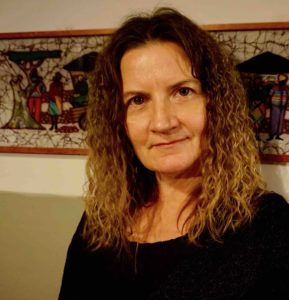 One of the many joys of building connections and relationships with each other is that we also get to encourage one another in our various journeys of recovery together. I am personally grateful to find some healing and comfort from all of you as I continue to walk through my own grieving period, right alongside all of you, as we process the loss of our friend and former co-chair Sunnie Whipple. Thank you for your many kind words, and help in this time when so many of you are also experiencing loss, anxiety, and challenges. This overlong Covid pandemic has not helped either, and I know it has added stress and loss to your lives too. I’m grateful that we can find some support and solace with one another.
One of the many joys of building connections and relationships with each other is that we also get to encourage one another in our various journeys of recovery together. I am personally grateful to find some healing and comfort from all of you as I continue to walk through my own grieving period, right alongside all of you, as we process the loss of our friend and former co-chair Sunnie Whipple. Thank you for your many kind words, and help in this time when so many of you are also experiencing loss, anxiety, and challenges. This overlong Covid pandemic has not helped either, and I know it has added stress and loss to your lives too. I’m grateful that we can find some support and solace with one another.
I have been thinking a lot about loss, as it isn’t always very apparent. Sometimes it sneaks up on us. In some ways, Covid is an example of this, as it took away freedom, independence, and other comforts (i.e. restaurants, meetups with friends), or worse, our health, or the sudden death of a loved one. There are also the losses we don’t even think about, like when you move away and lose the familiar places you grew up in, like neighborhoods, traditions, family, friends, scenery, pets, foods, languages, and even countries.
I recall feeling this loss when I moved from Kenya to Canada as a 15-year-old. The adjustment was not a smooth one. Looking back, I do realize I grew a lot from this experience. It stretched me. I had to learn to deal with a lot of changes like new food, winter weather, a different school system, changing technology, and other points of view. It threw me into a depression as a 17-year-old and I had to find a way out of it. I did not know at the time how much of it was associated with loss and culture shock. I had to learn new mechanisms to process it, which included new ways of thinking, diving into my art, the support of friends and family, and the value of faith and spirituality. I also learned how healing it was to read a good book, hear a good sermon or message, listen to music, visit a friend, go for a walk, or sit and watch nature. Simple things like a scampering squirrel, an exuberant bird song, a dog chasing its tail—they would create a moment of lively energy that made me smile or laugh. I learned to appreciate these little things.
I still rely on these little encouragements today, like a phone call from a friend, an email with a song attached, a wave or thumbs up at a virtual meeting, a text with a prayer or inspirational quote, a cup of tea placed into my hand, a card in the mail with some help and a verse, a gift of a blanket or warm soaks and a “creation pillow”, and so much more. It is just as intense when a stranger shows an unexpected kindness. I was at an AAA office and teared up when I shared that I had to park Sunnie’s car because he had passed on. She kindly helped me with the paperwork and told me to wait as she wrote, “you are loved” on a Post-It Note and attached it to my paperwork. It was like a big hug. It’s these unexpected little things that got me through each day, moment by moment.
And so, I want to encourage us all to keep doing the little things that will keep us moving forward. It warms us up and keeps us going. Be creative and take a chance to reach out. You never know how a little action on your part can help someone else get through another day, another heartache, another loss, another painful episode, another restless night, and many other ongoing challenges. Let us never discount the power of “little things” as we move through 2022 and find ways to bless and encourage each other. I look forward to hearing more stories of blessing and inspiration.
Johana Lozano
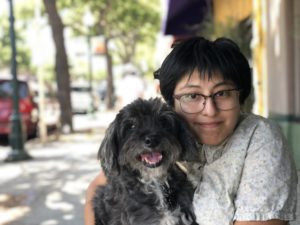 According to NIMH, suicide is a leading cause of death in the United States. Studies show that over 90% of people who committed suicide had a mental disorder or were abusing a substance. I often pray for those who have suicidal thoughts or committed suicide. I really don’t think they are to blame for what happened. What the world needs is more acceptance and understanding of mental illnesses. Many people may not ask for help because of the stigma behind having a mental disability. They may also not realize they have an illness. Thus it is crucial to educate others on how mental illnesses are not detrimental to people’s lives but can be managed.
According to NIMH, suicide is a leading cause of death in the United States. Studies show that over 90% of people who committed suicide had a mental disorder or were abusing a substance. I often pray for those who have suicidal thoughts or committed suicide. I really don’t think they are to blame for what happened. What the world needs is more acceptance and understanding of mental illnesses. Many people may not ask for help because of the stigma behind having a mental disability. They may also not realize they have an illness. Thus it is crucial to educate others on how mental illnesses are not detrimental to people’s lives but can be managed.
During my senior year of college, I was told that I not only had an anxiety disorder but that I also had depression. I was so upset I began to feel worthless and even contemplated suicide. After losing all hope, I found help at a DMH contracted clinic called Pacific Clinics that assigned me to a peer partner who came from a similar background as myself. Being surrounded by people who had an illness and still had a smile on their faces proved that I too could regain happiness. The support groups helped me get my confidence back and therapy, as well as medication, allowed me to feel like myself again. For a long time, I too felt that having a mental illness was a burden and was not to be talked about. I felt that I did not need anybody’s help to get better and that I was the one to blame. Thanks to peer-led treatment, I realized that it was not my fault and that I could not do this alone, that I needed the support of others to feel better again.
Now, I am moving towards the path of mental stability. I am no longer scared of taking medication or asking for help when I need it. Surely, I am still not 100% cured, but I am alright with that. I know that I must be patient and continue to take care of myself by being positive and taking my medication. A friend once told me, “Nothing lasts forever, not even your troubles,” Indeed, the access to behavioral healthcare means my troubles don’t have to last forever. I think that if we had more culturally competent peer-run clinics to educate the community on psychological well-being, we might have fewer suicides. The good thing is that we ourselves can be advocates for change in our own communities. We can educate others around us about the stigmas of mental illness and be living witnesses that people with a mental disability can live fulfilling lives. I would like to finish by thanking everyone who works in LADMH and the subcontractor agencies who continue to provide support to new members and old like me, by saying hello, treating us as patients, and participating in groups. Because everyone who participates is living proof that we are more than our mental illness.
CCC Membership
During CY 2020, the CCC had a total of ninety-two (92) members. The CCC membership consisted of representatives from different cultural and linguistic groups, different roles and walks of life including consumers, family members, caregivers, community members, advocates, peers, LACDMH stakeholder groups. Among them, the Underserved Cultural Communities Subcommittee (UsCC), Service Area Leadership Team (SALT), consumer-run organizations, community-based organizations, State and local advocacy agencies, mental health providers, and Los Angeles County sister departments of health. The functions of the LACDMH-affiliated members include volunteers, peers, management, and staff from administrative and clinical programs.
The richness of the CCC’s diversity can be easily appreciated across multiple elements of culture including race and ethnicity, linguistic capability, gender identity, preferred gender pronouns, sexual orientation, physical and cognitive abilities and disabilities, and a wide variety of agency affiliations.
Race and Ethnicity
The CCC members self-reported and described their racial/ethnic identity exactly as stated below:
- African American
- American
- Armenian
- Asian
- Black, Black American
- Caucasian
- Filipino
- Guatemalan
- Hispanic
- Indigena Latina
- Latina
- Latino
- Mexican
- Mexican American
- Irish and German
- Italian
- Japanese
- Korean
- Native Indian
- Spaniard/Latino/American Indian
- Spanish
- White
Language
The linguistic diversity of the CCC for CY 2020 consisted of the following eleven (11) languages:
- American Sign Language (ASL)
- Armenian
- English
- German
- Igbo
- Japanese
- Korean
- Portuguese
- Spanish
- Swahili
- Tagalog
Gender and Gender Pronouns
Out of 92 members, twenty-one (21) self-identified as male and seventy-one (71) as female. The preferred gender pronouns endorsed by our members include:
- he/him
- she/her
- they/them
- we/us
- ze/hir
Sexual Orientation and Identity
During CY 2020, all CCC members reported being cisgender. Furthermore, the committee’s diversity in terms of self-reported sexual orientations included heterosexual, lesbian, and gay.

